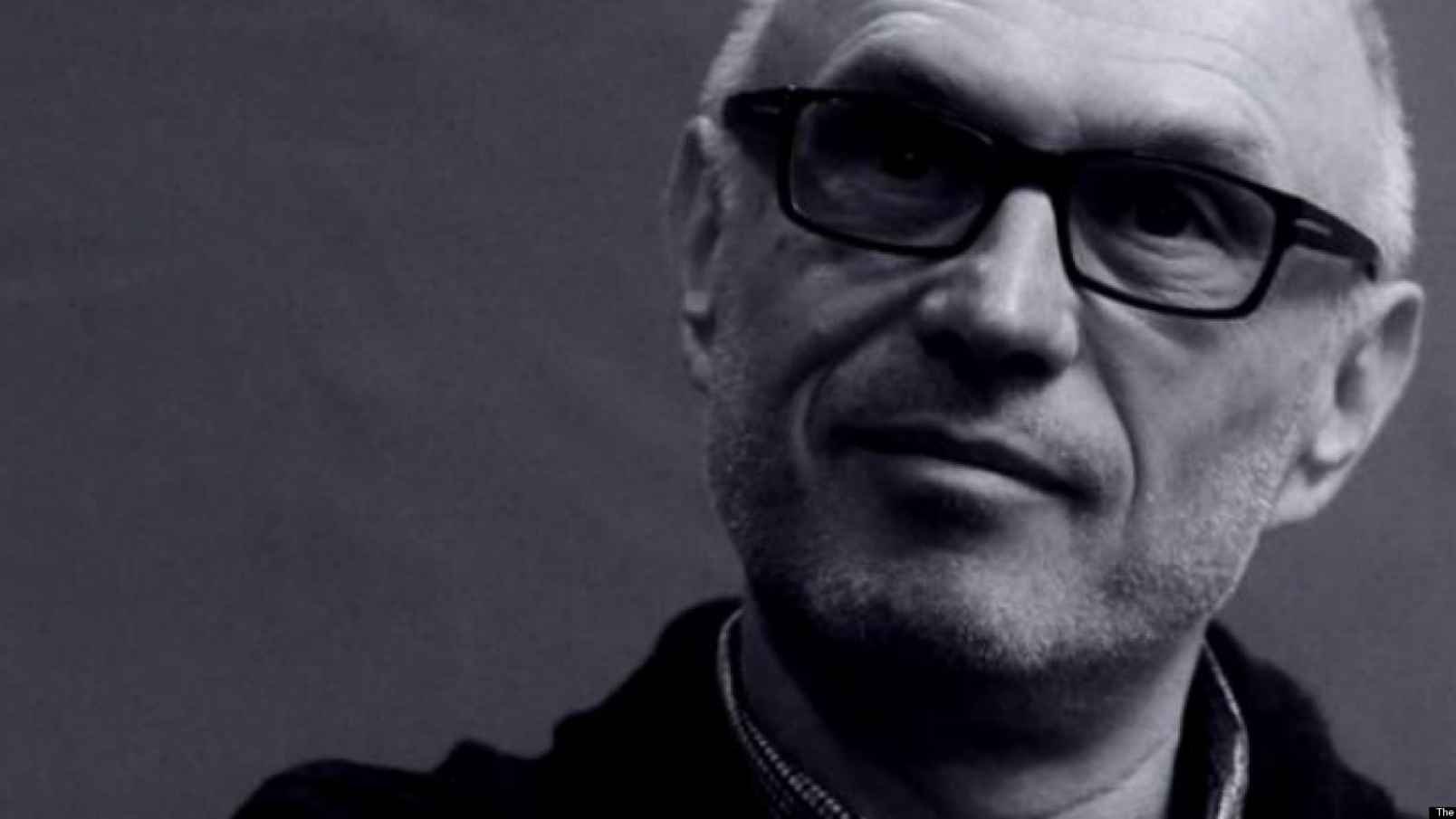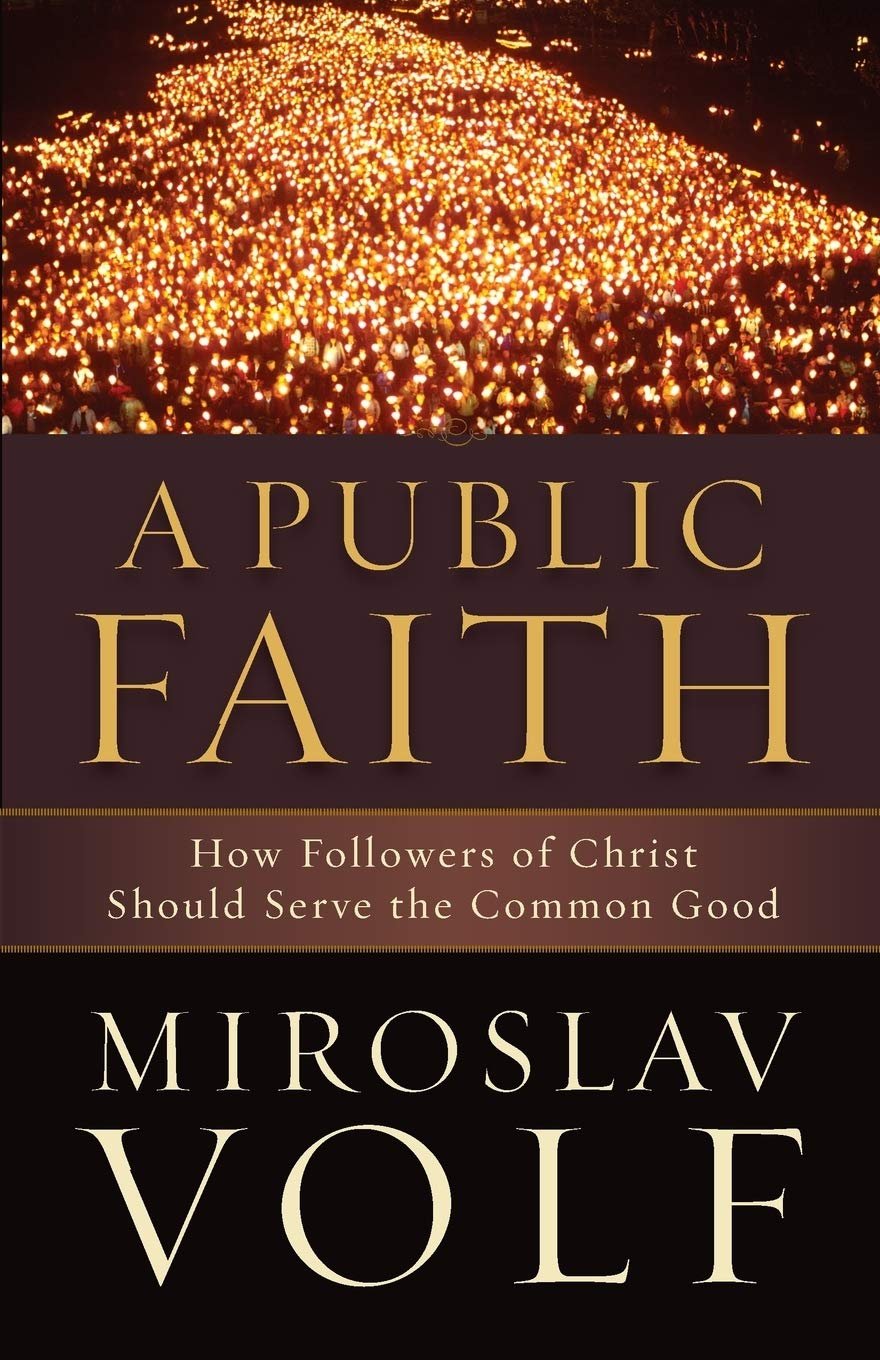A Public Faith
The role of faith in the public square is a theme I’ve been considering a lot lately, thinking about the need for civility in place of the contentious rancor so prevalent on both sides of the aisle, even (or especially) in Christian circles. And not only civility as a sort of quiet, passive alternative to culture wars, but somehow redirecting those energies into something a little more worthwhile, like a commitment to humble service — not seeking just our own self-interest, but instead working together for the common good.
In early January I read Miroslav Volf’s A Public Faith: How Followers of Christ Should Serve the Common Good (Brazos), which is basically about all of those things. Byron Borger at Hearts & Minds Books named it the year’s “best book on Christian public witness,” so that alone should let you know it’s good. Its themes are so big, so timely and so well articulated, but somehow I didn’t get around to writing about it right away. But after hearing Volf speak on Friday night in Portland, and after thanking him for his work, I decided it was time to say a little something about A Public Faith.
Volf introduces the book by describing the situation in which we find ourselves, religiously speaking: the world’s religions are growing, both numerically and in public impact. And unlike earlier days, religions aren’t geographically separated anymore; we’re literally each other’s neighbors. In other words, we’re living interspersed with each other, and we each have different visions of how the world should be.
In this context, we face two easy options: imposition or withdrawal. We could favor imposing one’s religion on others, or alternatively, we could settle for a thoroughly secular public square — but both would be malfunctions of faith. Volf, writing “as a Christian theologian to followers of Christ,” seeks to show us an alternative.
Unlike the five idealized Christian stances toward culture articulated by H. Richard Niebuhr in his classic Christ and Culture in 1956, the real world is simply too complicated to neatly reduce faithful Christian engagement to any one of the five. Whereas Niebuhr listed them as Christ against Culture, Christ of Culture, Christ above Culture, Christ and Culture in Paradox, and Christ Transforming Culture, Volf points to the real-world complexity we face:
Faith stands in opposition to some elements of culture and is detached from others. In some aspects, faith is identical with elements of culture, and it seeks to transform in diverse ways yet many more. Moreover, faith’s stance toward culture changes over time as culture changes.
See the complexity of it all?
Volf goes on to say that faith shouldn’t be idle, but active in all spheres of life, though it must not be coercive either. As Christians, he says that we can bring a unique vision of human flourishing and the common good to the public square, along with the resources to realize it. Even so, we must grant to other religious and political groups whatever rights we claim for ourselves.
“Most malfunctions of faith,” Volf says, “are rooted in a failure to love the God of love or a failure to love the neighbor.” So what does an engaged faith look like? He suggests that we must show how Christian belief actually leads to human flourishing and the common good, and that it springs from loving God and loving our neighbor. It’s not just stating our belief — that God exists, that he loves the world, that he is our hope, that he offers abundant life — but actually meaning it; that is, living what we believe, and doing what we do precisely because of what we believe:
That, I think, is today’s most fundamental challenge for theologians, priests and ministers, and Christian laypeople: to really mean that the presence and activity of the God of love, who can make us love our neighbors as ourselves, is our hope and the hope of the world — that this God is the secret of our flourishing as persons, cultures, and interdependent inhabitants of a single globe.
I know a lot of Christians who really are seeking to embody an engaged faith in the public square, and by God’s grace I really want to be one of them. But if Christians are still so widely known for being culture warriors or killjoys, I see a couple of possibilities that I think warrant honest and prayerful consideration.
Could it be that we are indeed busy seeking the common good, but doing so without bothering to mention the uniquely Christian basis for human flourishing that underpins our hope? Or could it be that for all our grand articulations about doing justice, loving kindness and walking humbly with our God, we’ve neglected to actually do it?

